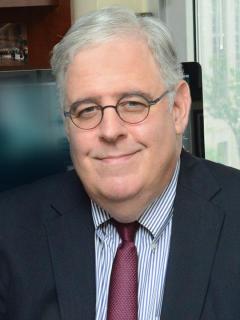 Dr. Joseph Fins
Dr. Joseph FinsResearchers at Weill Cornell Medical College's two campuses – in New York City and in Doha, Qatar – have collaborated on findings that provide a key insight for medical education across the globe. In the March issue of Academic Medicine, Joseph J. Fins, M.D., Chief of the Division of Medical Ethics in the Department of Medicine in New York, and Pablo Rodriguez del Pozo, M.D., J.D., Ph.D., Associate Professor of Public Health in Doha, borrow a concept from anthropology to demonstrate how "low-context" and "high-context" societies significantly impact how students learn.
In low-context societies, e.g., the United States, cultural guidelines tend to be overt and explicit, and students native to such a society learn best with a curriculum that reflects those qualities – detailed, thorough instruction, with little reliance on intuition. In contrast, high-context societies, e.g., the Middle East, are defined by implicit, even – by Western standards – hidden cultural norms, and students look more to unspoken environmental signs than to didactic instruction or textbooks. While the concept of a "hidden curriculum" has occupied medical educators for some years, Drs. Fins and Rodriguez del Pozo reveal a far more complex situation by positing that there is more than one hidden curriculum – that there are, in fact, as many hidden curricula as there are cultural contexts. The findings pose significant implications for medical education worldwide.
Dr. Fins is the E. William Davis, Jr., M.D. Professor of Medical Ethics, and Professor of Medicine, Public Health, and Medicine in Psychiatry at Weill Cornell Medical College; he is Director of Medical Ethics and Attending Physician at NewYork-Presbyterian Hospital. Dr. Fins is a Fellow of The Hastings Center and an elected member of the Institute of Medicine of the National Academy of Sciences.
Related Links
Abstract in Academic Medicine

